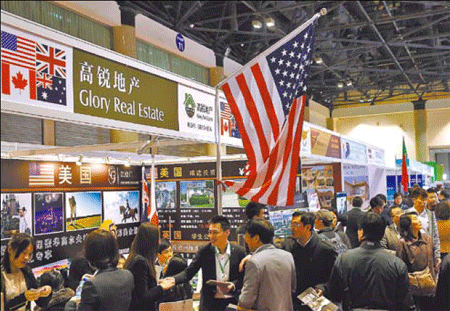Looking abroad for better investment
Updated: 2013-07-01 12:38
By He Wei in Shanghai (China Daily)
|
||||||||
|
An international real estate fair in Beijing, focusing on emigration to developed nations via property purchase, proved to be attractive to many Chinese. Provided to China Daily |
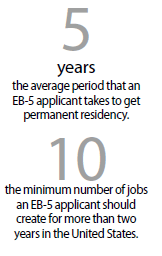
Re-launched US visa plan lowers cash threshold for potential China migrants
As options to the lackluster stock market or the strictly contained property sector, China's expanding middle class is looking to other sources of investment in the hope of getting a profitable return, not just financially but psychologically.
While it may seem odd to encourage investing abroad in a Chinese newspaper headline, an American immigration plan has been re-launched with a lower threshold for would-be immigrant investors who want to improve on an already decent life in China.
The EB-5, a US Immigrant Investor program that offers temporary visas to foreign investors with the possibility of becoming permanent residents, has really taken off in the past three years because of a major change in the rules.
Paradoxically, the revelation of an investment fraud under the policy in January has garnered the program more attention, accompanied, naturally, by growing concerns.
The EB-5 requires foreign investors to pour $1 million into creating projects and jobs in targeted employment areas in the United States. Data from the US Citizenship and Immigration Services suggest that 41 percent of all visa recipients in 2011 were Chinese nationals.
An eligible candidate can be anyone who put his or her lawfully gained assets into an investment. However, a permanent green card is only granted if it leads to the creation of 10 or more full-time jobs.
The program did not take off after regional centers were set up 10 years ago, said Laura Reiff, co-chair of business immigration and compliance practice at Miami-headquartered law firm Greenberg Traurig LLP.
"The program was announced in the early 1990s when the (US) Congress passed the law to attract investors to compete with big migration nations such as Australia and Canada. But not many people want to invest $1 million without knowing for sure they can create jobs," she said.
In 2003, an amendment was passed to the law to set up regional centers that allowed individual investors to put their money together to create bigger and more feasible projects.
A regional center is not merely a defined geographic area but rather is a legally established entity that coordinates foreign investment within that area in compliance with the EB-5 statutory, regulatory and precedent decision framework.
Reiff said regional centers are designated by the federal government in terms of geographic areas, allowing them to manage and market projects such as hotels manufacturing facilities, nursing houses and so on. These "quasi-government" agencies interact with the US government and investors on behalf of the projects, but most of them are privately run.
The reform gained added momentum when the benchmark investment amount was cut in half to $500,000, on the premise that the investment is made either in rural areas or in districts with high unemployment rates (considered to be 150 percent of the national average or more).
Chinese interests
Jeff Carmichael, a certified public accountant at RockBridge Senior Living Group LLC, a management advisory and consulting services provider, believes the EB-5 has only become a main alternative source of capital in the last three years because of the economic slowdown and banking system restrictions on capital.
The time slot happened to coincide with a noticeable wave of Chinese interest in the projects, when he noticed 3,600 investor visas - 80 percent of overall visas - were issued to Chinese nationals in the last US federal fiscal year that ended June 30, 2012.
"My observation is that around 85 percent of participants who take advantage of the EB-5 are from China. I guess it is because of the more-than-ever allocation of wealth in Chinese society and the appreciation of the renminbi," said Reiff, whose office in Shanghai has been handling applications on a daily basis.
In light of the relaxed requirements, the EB-5 project has become non-exclusive to rich Chinese entrepreneurs, said Grace Zhu, a consultant with UDA Education Consulting Group, an investment immigration service provider in Shanghai.
"Many high-profile white-collar workers and executives of companies are among the main applicants of the program. So long as they have more than 3 million yuan ($489,021), they become eligible candidates," Zhu said.
However Shen Wei, general manager of Hengxin Immigration Co Ltd, believes things are much easier for the wealthier. He depicted a typical applicant as someone who runs an enterprise and owns several residential apartments in China's first-tier cities.
"My estimate is that their net assets are worth at least 15 million yuan. They can simply invest without worrying about the deposit," he said.
The EB-5 has gained so much traction in China that Shen's firm has received 400 potential customers after a three-day overseas investment fair in Beijing.
He referred to a client, 58, who runs an iron ore plant in Inner Mongolia autonomous region. He is applying for his 28-year-old son to live in the US so he can have a better education and welfare resources.
Zhu said people aged 40 to 45 make up the majority of the applicants - and most of them come from the well-off coastal provinces such as Zhejiang and Guangdong.
"They are driven by living conditions in the US, the education resources and the welfare system. For some very ambitious entrepreneurs, they also look at overseas market expansion," she said.
Chinese preferences toward real estate are also found at the top of their overseas investment portfolios, experts say.
"It seems to me the Chinese are more interested in attaining real estate or options to have real estate in the US," Reiff said, saying that owning property can enable them and/or their families to move to the US in the future.
The majority of Reiff 's clients are looking at hotels, housing programs and any kind of assisted-living projects such nursing and old people's care homes. Furthermore, the Chinese favor recognized brands.
"For example, if a residential project is associated with world-renowned brands such as Marriot or Hyatt, people feel more comfortable about pouring their money into it," she said.
Unique issue
After making the investment, it is a two-step process before applicants successfully gain green cards, Reiff said.
"You invest the money to get a conditional visa but you have to file for the removal of the conditional one to get permanent residency," she said.
The whole procedure may take as long as five years. But not everyone is lucky enough to get the desired green card, Shen warned.
He said about 20 percent of all applicants may be barred from getting even a conditional offer, most often because they fail to prove their income was legally obtained.
"A unique issue among Chinese investors is the sourcing and tracing of funds. The program requires a clear illustration of the relationship between the money and investors, showing the cash was acquired in a lawful manner," he said.
Once they move on to the second stage, an applicants can be entitled to a green card only if his or her invested project will support at least 10 jobs for more than two years. Shen said about 10 percent of investment may fail to meet this demand.
Nevertheless, investors can never be sure about getting their money back. The official website says the EB-5 visa investors must be seen as risky so that investors are cautious of anyone who makes the claim a project is safe.
For example, although it was promoted by the mayor of Illinois, Pat Quinn, the Chicago Convention Center Project turned out to be a fraud. The two now-indicted con artists controlled a United States Citizenship and Immigration Services-licensed regional center and sharply over-valued a piece of real estate they owned to be used for a proposed development, among other shady maneuvers.
The scandal was especially significant to the program because something like 80 to 90 percent of the money in the EB-5 program came from China.
Shen said the problem was the over-valuation and exaggeration of the project, which helped them collect $11 million in fees and arrange for $145 million in investments, the latter of which never made it into their hands because the US Securities and Exchange Commission caught up with them before that happened.
"Chinese investors tend to look to their personal network of friends and acquaintances for business support and advice. This has given agents a huge advantage in recruiting investors, even though their reputations in the eyes of Chinese investors continues to spiral downward," he said.
Carmichael also believes Chinese investors are less sophisticated than their Western counterparts, given that most Chinese investors mainly focus on the green card issue without knowing how to detect which project is truly viable and safe.
"This is why Chinese investors should seek counsel from licensed Chinese emigration brokers and consider projects with very stable job creation opportunities in industries that are less likely to be affected by economic downturns," he said.
Carmichael's firm represents mostly senior care-related facilities, such as assisted-living. He said such labor-intensive, smaller and quick turn-around projects usually offer low-risk investment opportunities.
hewei@chinadaily.com.cn
(China Daily USA 07/01/2013 page1)

 Gay pride parade around the world
Gay pride parade around the world
 Four dead in Egypt clashes, scores wounded
Four dead in Egypt clashes, scores wounded
 New NSA spying allegations rile European allies
New NSA spying allegations rile European allies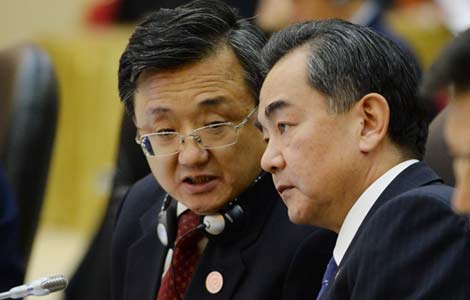
 Foreign minister makes ASEAN debut as tensions flare
Foreign minister makes ASEAN debut as tensions flare
 Yao stresses transparency in charity
Yao stresses transparency in charity
 NYC's gay pride march for celebration
NYC's gay pride march for celebration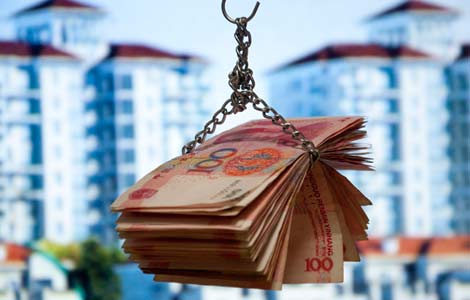
 Massive debt plagues local gov't
Massive debt plagues local gov't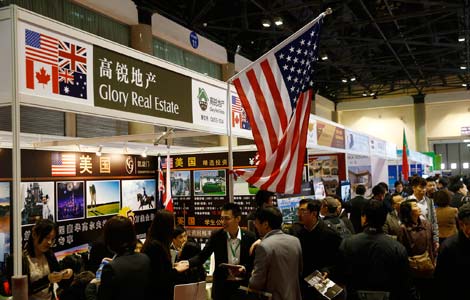
 Looking abroad for better investment
Looking abroad for better investment
Most Viewed
Editor's Picks

|

|

|

|

|

|
Today's Top News
Mixed outlook for EV makers in China and US
Obama to announce new power initiative for Africa
China's June manufacturing PMI falls to 50.1
Putin signs anti-gay measures into law
Mandela remains critical as family feuds
New NSA spying allegations rile EU
Fugitive terror suspect nabbed
Minister makes ASEAN debut
US Weekly

|

|
